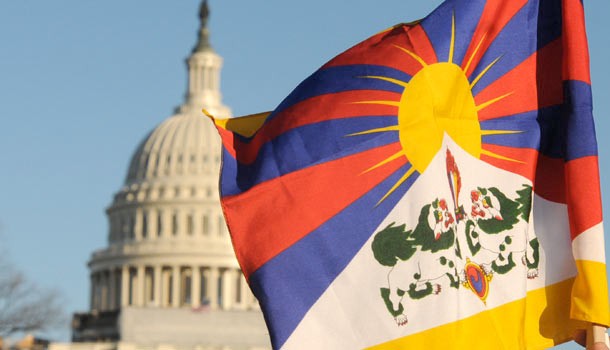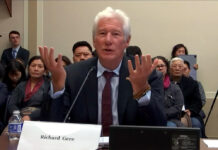
(TibetanReview.net, Dec13, 2018) – The Reciprocal Access to Tibet Act received its final US Congressional approval on Dec 11 when the Senate unanimously approved it, leaving only a signature from President Donald Trump for it to become law. The legislation seeks to end the isolation of Tibet by requiring that Beijing grant the same level of access to the occupied region for its citizens as Washington does to Chinese diplomats, journalists, and other citizens. President Trump is expected to sign the bill into law, said Washington-based International Campaign for Tibet (ICT), reporting on the latest development.
The Reciprocal Access to Tibet Act of 2018 was earlier introduced in the House of Representatives by Reps. Jim McGovern (D-Mass.) and Randy Hultgren (R-Ill.) and in the Senate by Marco Rubio (R-Fla.) and Tammy Baldwin (D-Wisc.)
“The Reciprocal Access to Tibet Act is an important statement of our values, and I am happy to see it sent to the President’s desk before the end of the year,” Sen. Robert Menendez (D-NJ), one of the 14 cosponsors of the bill, was quoted as saying.
Explaining the logicality of the bill, Menendez has said, “This legislation is simply about fundamental fairness. Chinese citizens enjoy broad access to the United States, and I think that is terrific. But, it is unacceptable that the same is not true for US students, journalists or diplomats going to Tibet, including our Tibetan-American constituents just trying to visit their country of origin. If China wants its tourists, officials, journalists and other citizens to be able to travel freely across the US, American citizens must be able to travel freely in China, including Tibet.”
He has commended the ICT for its work on the bill which began in 2014.
Likewise, Sen. Rubio has said, “We should not accept a double standard where Chinese officials can freely visit the United States while at the same time blocking our diplomats, journalists and Tibetan-Americans from visiting Tibet. I look forward to President Trump signing this bill into law that will help to restore some measure of reciprocity to America’s relationship with China.”
He has said China’s repression in Tibet included keeping out those who can shine a light on its human rights abuses against the Tibetan people.
After being signed by President Trump, the bill would require the Secretary of State to assess the level of access to Tibet available for US citizens within 90 days and to send a report to Congress identifying Chinese officials who are responsible for keeping Americans out of the region. The Secretary of State will then ban those officials from receiving visas to enter the US.
The Act thus does not seek to ban all Chinese passport holders from visiting the USA if Beijing refuses to relent on Tibet.





